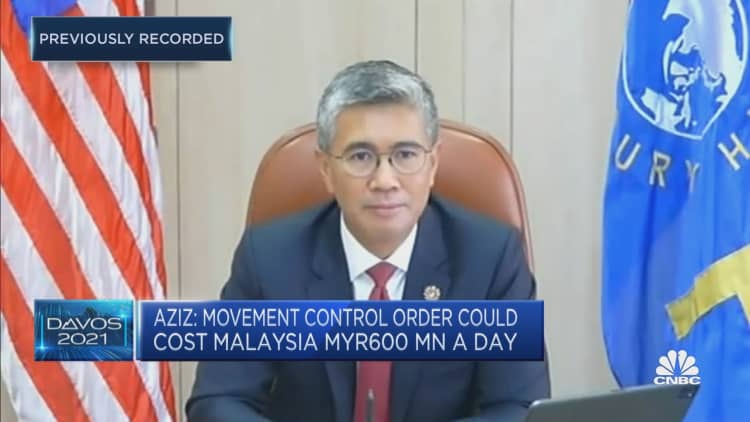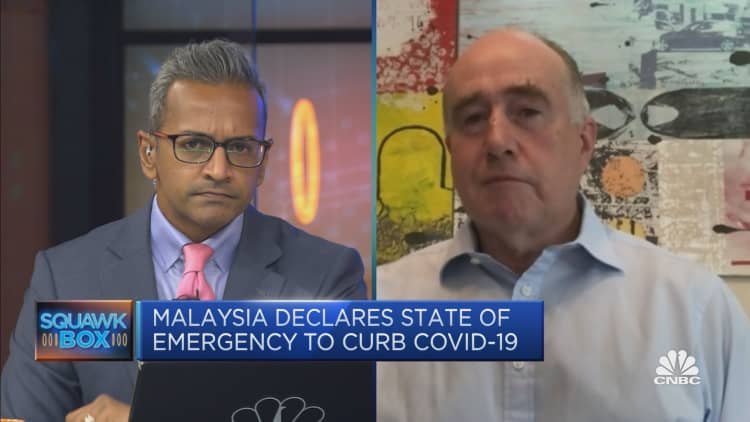
SINGAPORE — Malaysia's ongoing lockdown to contain Covid-19 will hit the economy much less than the previous one when more economic activity was restricted, Finance Minister Zafrul Aziz said on Friday.
The current round of measures costs Malaysia an estimated 700 million ringgit ($172.7 million) a day in lost economic output or GDP, said the minister. That's less than the estimated 2.4 billion ringgit ($592.3 million) a day when the entire country was locked down last year, he added.
One main difference is that ongoing measures mainly restrict social activities and allow most segments of the economy — which contribute 90% of GDP — to remain open, said Zafrul. In comparison, fewer sectors could operate during last year's lockdown, he added.
"Today, we've learnt from lessons from the past. So we are restricting more targeted sectors but more importantly, social activities and some movements interstate," he told CNBC as part of the coverage of the World Economic Forum's Davos Agenda.
The government is maintaining its forecast for the Malaysian economy to grow between 6.5% and 7.5% this year, said Zafrul. However, many economists cut their projections after Malaysia tightened measures in several states and territories two weeks ago.
Zafrul also said his ministry is maintaining its budget deficit forecast of 5.4% of GDP. Malaysian Prime Minister Muhyiddin Yassin last week announced 15 billion ringgit ($3.7 billion) in additional stimulus to support the pandemic-hit economy.
"We will monitor this. If there is a need for further fiscal injection to help, to revive the economy in the short term, it's something that the government has to do and that will obviously have an impact (on) deficit," said Zafrul.
Vaccination rollout
The latest lockdown, initially planned for two weeks, has been extended to all of Malaysia — except the state of Sarawak — until Feb. 4. Zafrul said the government is still monitoring the situation before deciding whether to extend the current measures.
Malaysia is also currently under a state of emergency that's planned to last until Aug. 1 or earlier if the Covid outbreak comes under control. The state of emergency has little effect on everyday life, but parliament will be suspended and elections cannot be held.

Still, the number of daily Covid cases in the country have not appeared to slow down.
The Southeast Asian country is expected to receive its first batch of Covid vaccine from Pfizer next month, which would allow the rollout of a vaccination program in March, said Zafrul.
"The target is to vaccinate 80% of our population to achieve herd immunity," he said, referring to the stage where enough people in a population develop protection against a disease such that it can no longer spread easily.
The vaccination effort is estimated to "take about 12 months to at least the first quarter of next year," he added.
In a worst-case scenario where cases don't ease off despite stringent social-distancing measures and vaccination, the government will not impose a "total lockdown" on the economy, the minister said.
Instead, any further measures will be targeted, and the government will focus on strict adherence to the restrictions, he said.






